Interview with the young section of the Polish Society of Radiation Oncology (yPTRO) - PDF Version
Why have you decided to establish the young section of the Polish Society of Radiation Oncology (yPTRO)?
We were inspired by the actions undertaken by the young committee of the European SocieTy for Radiotherapy and Oncology (ESTRO), which cares about the interests of young radiation oncology professionals. When we participated in ESTRO congresses, in particular in the young track, we noted that several countries had established young sections of their societies to improve networking at the regional level. Talking to our colleagues who work in small departments, we felt that there were several issues that should be addressed on the national level (such as courses, training, board exams, the relationship between supervisor and trainee) but the “senior” section would look at those problems from a different perspective. We aimed to meet the needs and strengthen the voices of young radiotherapists in our society.
When was the section founded?
Our section was formed in 2018 when PTRO established a yPTRO. Our group consists of young radiation oncology professionals below the age of 40, and it includes our youngest colleagues who are in training.
What were the initial aims of your group?
One of the first aims of our group was to address the issue of training quality and to identify the requirements of radiation oncology trainees, and the difficulties they encountered. At the end of 2018, we carried out a large nationwide survey and managed to get responses from more than 100 trainees. The results were published in the Journal of Cancer Education. The results enabled us to evaluate the current situations of radiation oncology trainees in Poland and to identify their unmet needs. What is more, our report got the attention of the national consultant in radiation oncology (a medical specialist appointed by the Polish Ministry of Health) who subsequently commissioned quality control assessments in several hospitals. Following this experience, we conducted a second survey-based study to assess the situation of young (<40 years old) radiation oncologists who had completed their training in Poland. The results were also published in the Journal of Cancer Education. Notably, this is the first such report in our country and it serves to develop strategic priorities for the future.
What are your current actions?
We started a series of workshops that were aimed at strengthening collaboration between young radiation oncology professionals in Poland and to discuss aspects that were not covered thoroughly during specialist training (e.g., biostatistics and critical appraisal of the results of clinical trials). Due to the Covid-19 pandemic, the workshops have been performed online. However, they are free of charge and the meetings are recorded, so anyone can access the materials. Each workshop is followed by an evaluation questionnaire for viewers to complete in order for us to increase the quality of our meetings and to address the crucial needs of our community.
We have also started collaboration with our colleagues from the young section of the Polish Society of Medical Oncology. We have launched a new series of workshops to exchange our experiences and to discuss selected issues from the perspectives of both radiation and medical oncologists. It is important that the topics of the workshops are selected by the participants themselves. So far, the subjects of oligometastatic disease, emergencies in radiation oncology, and ways in which these emergencies can be handled, have been presented and discussed. In future we plan meetings on stereotactic radiotherapy and other subjects, according to members’ requests.
What are your next steps?
First, we want to keep the flame burning. We started a series of initiatives and now it’s important to develop them to become recurring events. In order to do this, we need to activate our community even more and increase our visibility. We are currently working on creating our own space on the PTRO website. In addition, the results of our surveys serve as a basis for discussions of changes that are required in the education programme. Our representatives are involved in the activities of the team that is working on such amendments.
What would you advise colleagues from other countries to do when there is no young section of the national society?
Don’t waste any time. Establishing a young section is the best way to create a networking platform for young professionals in your country, to improve the quality of training, to identify and solve the problems of your community and to promote novel initiatives.
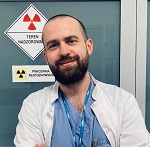
Artur Jan Chyrek
Brachytherapy department,
Greater Poland Cancer Centre
Poznań, Poland
artur.chyrek@wco.pl
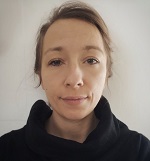
Aleksandra Napieralska
Radiotherapy department,
Maria Skłodowska-Curie Memorial Cancer Center and Institute of Oncology Gliwice Branch
Gliwice, Poland
olanapieralska@gmail.com
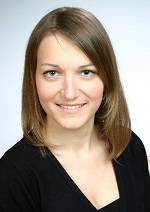
Ewa Pawłowska
Department of Oncology and Radiotherapy
Faculty of Medicine
Medical University of Gdańsk
Gdańsk, Poland
ewa.pawlowska@gumed.edu.pl
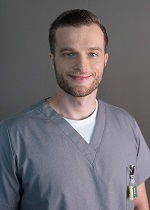
Mateusz Spałek
Department of Soft Tissue/Bone Sarcoma and Melanoma
Maria Skłodowska-Curie Institute, Oncology Center
Warsaw, Poland
mateusz.spalek@pib-nio.pl
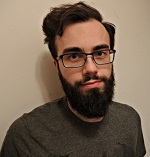
Bartłomiej Tomasik
Department of Oncology and Radiotherapy
Faculty of Medicine
Medical University of Gdańsk
Gdańsk, Poland
bartlomiej.tomasik@gumed.edu.pl